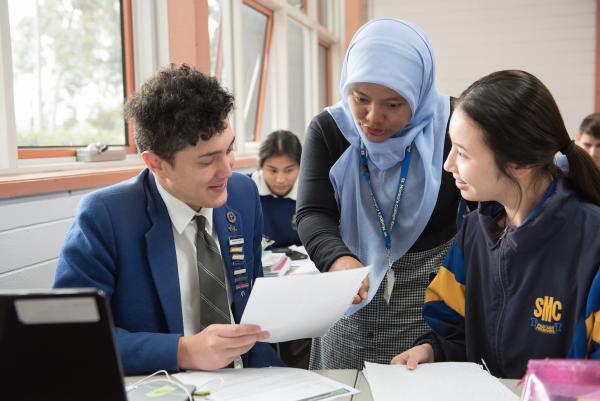Last summer, I spent two months in India on an AIESEC internship. Immersed in the depths, it was one of the most challenging, rewarding, and bewildering cultures that I have yet to experience.
Twelve days into my stay in India, I attempted to explain the culture in my blog:
“The traffic of India reflects the culture in which they live. You can learn to move with the traffic, jump into the sea of cars and become a part of the chaos and the uncertainty. Once in the traffic you must stay completely aware of your surroundings, but everyone else knows you’re there too so even if you take your time you won't get hit.”
To explain this post, I have broken it down into three points that could apply to the experience of any overseas intern when they make the potentially life-changing decision to “jump into the sea of cars”:
1) Expect the unexpected: “You can learn to move with the traffic—become a part of the chaos and the uncertainty.”
So here you are. In the land of unexpected experiences: where a meeting time becomes three hours later; where a 12-hour bus ride from the mountains becomes 30 hours; where the water in your building stops on the hottest day since you’ve arrived; where you find yourself squished in an auto-rickshaw with five people stuck in a foot-deep puddle in the dark on the only rainy day of the summer, as cars swerve around you grazing the edge of the auto. Yes, these types of things will probably happen, and they are my live accounts of what I experienced, but I don’t want to give too much away.
If you are the type of person who thrives in an organized setting, where people and places follow plans and order, it may now be time to let this side of you go. I am not saying to forget about this crucial part of your day-to-day lifestyle, but to sit down before you depart on the plane and plan to be surprised. Plan to be challenged by the idea of things not going as planned.
If you reach this part in your India experience, you will start to see the true beauty of learning and understanding the intricacies of another culture. How do you reach this point you wonder? Well, my next two points may help with that.
2) Be open-minded and accepting: “Once in the traffic, you must stay completely aware of your surroundings.”
Of course, if you’ve decided to do an internship in India, you have already shown that you have the quality of being open-minded. However, I have found that is it one thing to say it, and it is another to live it.
One of the ways that I survived my Indian experience was by accepting the differences in people’s beliefs. There were moments when I was truly taken aback by the actions of the locals; when my moral code felt breached; or I struggled to believe that a young boy was maintaining our household, taking out the garbage of 25 interns and cleaning our floors every day.
Even though I was confronted with “surprises” on a daily basis, I soon began to accept them as everyday experiences. I was in a developing country with millions of people living on the streets under shacks and pressed against garbage piles, many of whom are kids and elderly and I was about to be discouraged that my water stopped running for the day? I would not be an intern that rejects the culture around him or her. What I would suggest is that once you have started your own journey, ask yourself, will you open your mind and accept what the culture has to offer?
3) It’s all about YOU: “But everyone else knows you’re there too so even if you take your time you won't get hit.”
This last point may be the most important. I believe it is self-evident, but often it becomes hidden in the intensity of culture shock that sometimes overwhelms interns. At the end of your journey, you will realize that what you had experienced was all up to you. The intern experience is truly, and will always be, about the people. These people being the intern and those around you that you share this experience with.
Someone can’t tell you how to live your experience by saying that you will love seeing the grand Taj Mahal. (From my own point of view, I had seen more extravagant views than this building despite its beauty.) What I believe is that whether you love or hate your experience is a decision that you make. You can decide to take that 12-hour (or more, depending on the day) bus ride to the mountains at the risk of a tire exploding or a monsoon mudslide stopping traffic, or you can sit in your room and write a blog post complaining about the water blockage or the fans breaking.
Your experience is what you make it, so jump into the traffic, expect the unexpected, open your mind and accept that it’s all about you.
Jacqueline Stol is a fourth-year student studying Psychology at the University of Ottawa. After spending two months in India teaching underprivileged children, Jackie joined the AIESEC chapter in her university to become the Vice President of Outgoing Exchange, the title she currently holds. Through this role, Jackie hopes to provide students with life-changing experiences similar to the one she encountered. Jackie’s travel blog from India can be found here.
Add this article to your reading list




